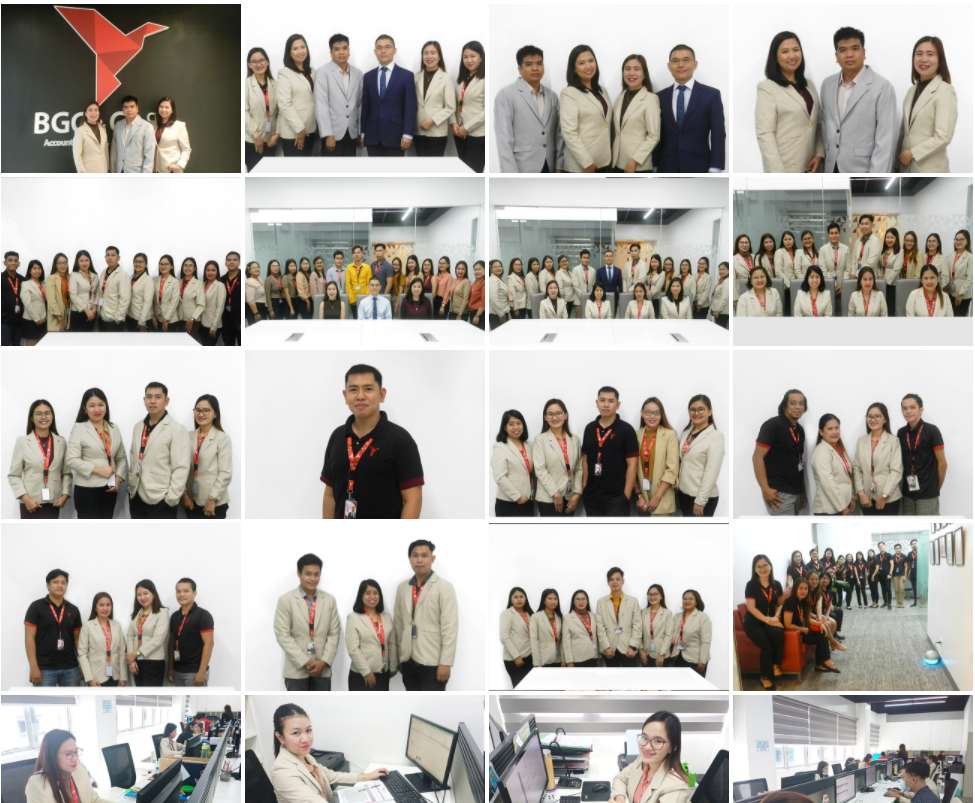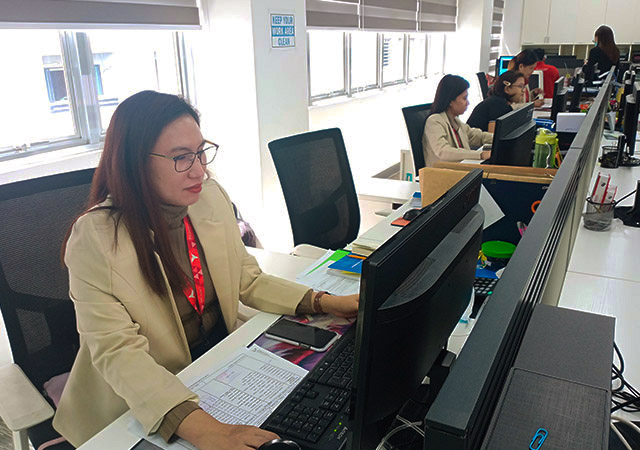Starting a business in the Philippines

Starting a business in the Philippines is simple with our Company Registration services to foreign entities seeking to set up operations in the Philippines. We offer end-to-end assistance from company incorporation, corporate secretarial work and corporate housekeeping to application for secondary licenses/permits, corporate restructuring, and general compliance work.
When starting a business in the Philippines, we help our clients choose the right type of business entity to register, whether their purpose is to generate income or establish their back office in the country. We also assist them in evaluating the following:
- ownership structure
- capital requirements on the industry to engage in
- need for special or secondary licenses/permits (if they intend to engage in regulated industries)
- location of business
- staffing requirements to assess the approximate size of their office space and facilities
Types of Business Entities for Foreign Investors
Foreign entities looking to start a business and set up a company in the Philippines can choose among six types of legal entities:
For foreign investors seeking to establish a local company:
- Domestic Corporation
- One Person Corporation
For existing foreign corporations seeking to expand operations in the Philippines:
- Branch Office
- Representative Office
- Regional Headquarters (RHQ)
- Regional Operating Headquarters (ROHQ)
When doing business in the Philippines, you will realise that all types of corporations in the country can only start their business operations after registering with the Securities and Exchange Commission (SEC) — the government agency mandated to regulate and supervise existing corporations in the country.
Domestic and One Person Corporations are required to obtain a Certificate of Incorporation and a Certificate of Registration from the SEC. A Certificate of Incorporation legitimizes its existence as a corporation organized and existing under Philippine laws. A Certificate of Registration authorizes it to engage in business within and outside the Philippines.
Foreign corporations seeking to do business in the Philippines are required to obtain a License to Do Business from the SEC before starting their operations.
Generally, corporations with foreign equity are allowed to set up businesses in the Philippines, except in areas of investment partially or wholly exclusive to Filipino entrepreneurs. For a complete list of the areas of investment restricted to foreign enterprises, please click here.
Also, existing foreign corporations are required to appoint a Resident Agent who will receive summons and legal proceedings served to their corporation in the Philippines. The resident agent can be a foreigner or a Filipino citizen.
Domestic Corporation
Similar to a Limited Liability Company (LLC), a Domestic Corporation (or Subsidiary Corporation if with foreign equity) is the most common type of corporation in the Philippines. Its legal entity is separate from its shareholders and must have at least five incorporators, who must be natural persons of legal age and subscribers of at least one share of capital stock in the corporation.
This type of corporation is required to obtain a Certificate of Incorporation and a Certificate of Registration from the SEC. A Certificate of Incorporation legitimizes its existence as a corporation organized and existing under Philippine laws. A Certificate of Registration authorizes it to engage in business within and outside the Philippines.
There are three types of domestic corporations in the Philippines:
- 100% Filipino-owned Domestic Corporation
- 60% Filipino-owned and 40% Foreign-owned Domestic Corporation
- 40% to 100% Foreign-owned Domestic Corporation
The minimum capital requirement of a domestic corporation will depend on its source of revenue, which can be any of the following:
- Export-Market Enterprise– if at least 60% of the company’s revenues are generated from overseas, the minimum paid-up capital is US$100.
- Domestic-Market Enterprise– if more than 40% of the company’s revenues are generated within the Philippines, the minimum paid-up capital is US$200,000.
Related: How to Set Up a Domestic Corporation in the Philippines »
One Person Corporation
A One Person Corporation (OPC) is a type of corporation with a single stockholder who shall also be the sole director and president. It offers the full authority and control of a sole proprietorship and the limited liability of a domestic corporation, an ideal setup for aspiring entrepreneurs planning to run a corporation on their own without the associated risks of incurring personal liabilities and having business partners.
The single stockholder (also known as incorporator) can be a natural person of legal age, a trust or an estate. Under applicable laws, the trust does not refer to a trust entity, but to the subject being managed by a trustee.
Similar to a Domestic Corporation, an OPC is also required to obtain a Certificate of Incorporation and a Certificate of Registration from SEC.
A foreign natural person can set up an OPC, provided they engage in areas of investment not restricted from foreign participation.
Unlike other types of corporations, an OPC is not required to have a minimum authorized capital stock, except as otherwise provided by law. Further, unless stated by applicable laws or regulations, no portion of the authorized capital is required to be paid up at the time of incorporation.
The single stockholder is required to designate a nominee and alternate nominee who shall be indicated in the Articles of Incorporation to replace the single stockholder if they die or become incapacitated to operate the OPC.
Related: How to Register an OPC in the Philippines »
Branch Office
A Branch Office is a revenue-generating entity that carries out the business activities of its foreign parent company into the Philippines. It does not have a separate legal entity from its parent company and its liabilities are incurred by the head office from abroad.
The minimum paid-up capital of a branch office is US$200,000.00, but can be reduced to the following:
- US$100,000.00 (if it will engage in business activities involving technology or employ at least fifty [50] direct employees)
- US$100.00 (if it seeks to be an Export-Market Enterprise that generates income overseas)
Related: How to Set Up a Branch Office in the Philippines »
Representative Office
A Representative Office is a non-income generating entity that can be set up by a foreign company in the form of a back office or contact center where they can delegate their administrative and technical operations, such as following:
- promote company services/products
- facilitate client orders from abroad
- perform quality control of products for export
It does not have a separate legal entity from its foreign parent company and its liabilities are incurred by the head office from abroad. As a non-income generating entity, it is not allowed to offer services to clients or third parties in the Philippines.
The minimum capital requirements of a representative office are US$30,000.00, which shall be annually remitted by the parent company to support operating expenses.
Related: How to Set Up a Representative Office in the Philippines »
Regional Headquarters (RHQ)
Similar to a Representative Office, a Regional Headquarters (RHQ) is a non-income generating entity that can only be set up by foreign corporations with subsidiaries, branches, and/or affiliates worldwide. It can be established in the form of a contact center or back office to supervise, inspect or coordinate the administrative functions of the aforementioned entities.
Under conditions allowed by law, it may source raw materials, market products, train employees, and/or conduct research and development in the Philippines.
It does not have a separate legal entity from its parent company and its liabilities are incurred by its head office from abroad.
Under Philippine laws, an RHQ is not allowed to perform the following:
- generate income or offer services to third parties in the Philippines
- manage the operations of its subsidiaries, branches, and/or affiliates
- deal directly or do business with its clients in the Philippines
Its parent company is also not permitted to sell or market products through the RHQ office.
The minimum capital requirement for setting up an RHQ is US$50,000.00, which shall be annually remitted by the parent company to support operating expenses.
Related: How to Set Up a Regional Headquarters in the Philippines »
Regional Operating Headquarters (ROHQ)
Similar to a Branch Office, a Regional Operating Headquarters (ROHQ) is a revenue-generating entity that carries out the business activities of its foreign parent company into the Philippines. It can only be set up by foreign corporations with affiliates, subsidiaries, and/or branches worldwide, in the form of a service center for the entities owned by the parent company.
An ROHQ does not have a separate legal entity from its parent company and its liabilities are incurred by its head office from abroad.
Under Philippine laws, it is not allowed to directly or indirectly solicit or market goods/services on behalf of its parent company, subsidiaries, branches, and/or affiliates. It is also prohibited from offering qualifying services to third-party enterprises other than its associated entities.
To support its annual operations, the parent company is required to remit at least US$200,000 every year.
With years of experience with business registration and exposure in the Philippine market, BGC and Co. CPAs can help your organization in choosing the best structure for your business endeavours.

BGC and Co. CPAs is a mid-sized progressive auditing firm providing comprehensive set of cost effective solutions to organizations like yours.
Our services include auditing, accounting, bookkeeping, business management, and HR consulting. Further, we provide other business services like VISA processing in Bureau of Immigration (BI), Philippine Retirement Authority (PRA).
We are equipped with state of art tools and techniques along with dedicated professional to evaluate potential opportunities and risks effective auditing and assurance services. We understand a value adding auditing and assurance service focus on scope of business improvement rather than merely preparing financial statements and reporting on figures.
The firm was formed to assist clients on the preparation of compliances relating to tax, financial management, forecasting and accounting software and system installation. Assist clients in tax investigations, internal auditing procedures and provide on financial, taxation, accounting and auditing matters when needed. Processing of business registration, cancellation / termination.
Our Mission
Deliver reliable cost effective professional services in time meeting specific customer requirements.
Our Vision
To become one of the best auditing and accounting firm in the Philippines providing the utmost satisfaction to all the clients. We would like to be known as one of the finest company to partnered with in all the aspects.
Our Team
Our teams of dedicated professionals led by senior qualified accountants are obliged to give you quality services which will enable you to serve your clients better and there by improve your business. We together with our associates enable to give you the best in the industry.
ABOUT OUR SERVICES
Auditing and Assurance
We are equipped with state of art tools and techniques along with dedicated professional to evaluate potential opportunities and risks delivering effective auditing & assurance services. We understand value adding auditing and assurance service focus on scope of business improvement rather than merely preparing financial statements and reporting on figures.
Our expertise in analyzing accounting systems, designing better systems with proper internal controls and management information reporting help our clients to adequately plan their business building strategy and give them the confidence to pace up with the rapidly growing economy.
Accounting and Bookkeeping

Accounting and bookkeeping is a necessity of every organization irrespective of its size. Our professionally qualified and experienced accountants understand and analyze business transactions and ensure compliance with the accounting standards. BGC has well trained staff familiar with many of the accounting system and most especially to the rapid changes in the BIR rules and regulations. Qualitative and timely accounting reports are crucial for the success of any business organization. BGC ensures relevant and reliable financial reports are delivered on regular intervals to assess performance and to facilitate decision making. Outsourcing of accounts department helps you to get professional expertise at lower cost and BGC provides the most efficient and effective bookkeeping solutions.
We assist you with below services:
• Accounts preparation and supervision
• Preparation and presentation of financial reports
• Bookkeeping services
• Payroll processing
• Training of accounting staff
Business Set-up and Termination
We do assist in setting up different types of business organizations through registrations to different government agencies such as:
• Securities and Exchange Commission (SEC);
• Bureau of Internal Revenue (BIR);
• Local Government Unit (LGU);
• Department of Trade and Industry (DTI);
• Social Security System (SSS);
• Philippine Health Insurance (Philhealth);
• Pag ibig;
• Food and Drug Administration (FDA)
We also assist our foreigner clients for the following:
• VISA extension;
• Bureau of Internal Revenue (BIR);
• 9g VISA;
• Special Resident Retiree’s VISA (SRRV)
• Social Security System (SSS);
• Passport Renewal
SERVICES
CONTACT US
ADDRESS
- 7TH FLOOR, PCCI CORPORATE CENTER, L.P. LEVISTE ST., SALCEDO VILLAGE, BRGY. BEL-AIR MAKATI, PHILIPPINES 1209
- Info@bgcco.ph
- lconvento@bgcco.ph
- Working Hours : 8:00 a.m - 5:00 p.m
